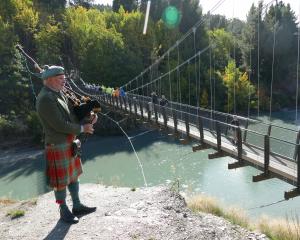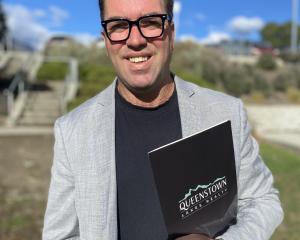More than three-quarters of respondents said the level of noise allowed in the town centre should be increased to some extent, with one respondent calling present limits "farcical".
Council senior policy analyst Ralph Henderson's update on public consultation into plan change 42 was received by the council strategy committee on Tuesday.
The initial consultation included a public discussion document and questionnaire, which elicited 81 responses and feedback.
The report stated 94% of respondents answered "yes" to the question of whether the "town centre should continue to be home to a diverse mix of uses", although Mr Henderson said the figures might have been skewed by "a greater mix towards a hospitality focus".
When asked which was the most important to cater for, hospitality, residential or other uses, the response was 59% for hospitality, 17% for residential and 24% for other.
Mr Henderson said hospitality's high response rate could reflect the lack of alternative locations or zoning for it.
"The relatively low rate of response to `other', which would include retail, office and a range of other service activities, may reflect the relative polarisation of the noise debate between hospitality and residential-visitor accommodation sectors," he said.
On the appropriateness of the CBD becoming noisier to help it become more vibrant, the votes were again in favour, with just 30% answering `no'.
Mr Henderson said the responses highlighted a "strong connection between the current noise limits and perceptions of vibrancy in the town centre in the minds of many of the respondents.
"Although responses varied from one extreme to the other, a number also suggested a degree of compromises was appropriate to provide more outdoor use till midnight," he said.
The issue of whether to limit the location of noise-sensitive activities was blurred, with respondents giving false positives and negatives due to confusion over the term "noise sensitive".
Of the respondents, 54% answered "yes" and the remaining 46% "no", although Mr Henderson said some respondents might have interpreted 'noise-sensitive activities' as 'noise-generating activities'.
However, overall feedback was divided and he said the confusion did not greatly affect the result, which showed restricting locations of noise-sensitive activities had mixed support and noise-sensitive or noise-limiting subzones in the CBD had limited support.
The question of whether new noise-sensitive activities in the CBD should be required to soundproof gained a 94% positive response.
Feedback on how to address the downtown noise issue ranged from apathetic - "who cares?" - to antagonistic: "... other methods to reduce noise issues is to get rid of all the moaning and miserable people from the community as this is a noise issue in itself".
One submitter said residential accommodation in the CBD "should have a caveat or similar prohibiting owners/tenants from objecting to noise-generating activities i.e taverns," while another espoused noise being "re-categorised as a detrimental, antisocial nuisance ... and be prosecutable, as a breach of the peace."
Other ideas included closing bars earlier, strictly enforcing noise limits, making noise limits consistent with the country's main urban centres, and rethinking and rigid monitoring of liquor licensing policy.












